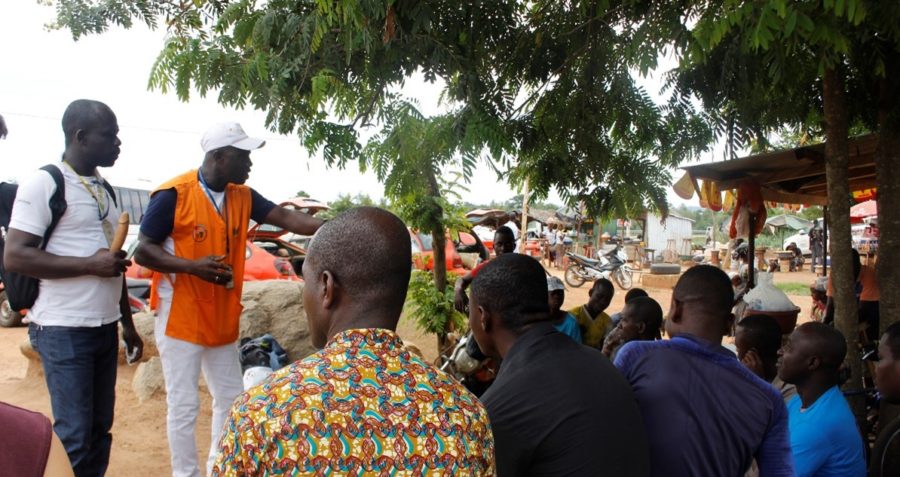Workplace healthchecks for men

Key information
- Organisation: Alliance Nationale pour la Santé et le Développement en Côte d’Ivoire
- Country: Côte d’Ivoire
- Region: Western and central Africa
- Stage of innovation: Stage 3: Pilot
- Start date: Sep 2018
- End date: Dec 2019
- Type of innovation: Services delivery innovation: new or different way of providing a service
- Budget: US$16,000
- Funded by: Global Fund
Summary of intervention
In Côte d’Ivoire, men living with HIV are less likely to access treatment or test for HIV than women. A 2018 study suggests this is because men do not feel at risk of HIV or because they fear an HIV-positive diagnosis. To increase HIV testing and treatment among men, Alliance Côte d’Ivoire has designed multi-disease workplace healthchecks.
Male employees (over 25 years) are offered free medical consultations for diabetes, high blood pressure, malaria, STIs and tuberculosis. At the consultation’s end, the health provider discusses HIV and directs the participant (with their informed consent) to community HIV testing services. A community representative will accompany anyone diagnosed HIV positive to a clinic to start HIV treatment.
The local health district leads the campaign. It is responsible for working with employers and providing health staff and testing equipment. To encourage men to take part radio adverts are broadcast. Community stakeholders also mobilise men to participate.
Over 16 months the scheme has diagnosed 996 men living with HIV, increasing the HIV testing yield by 1.5. All men diagnosed with HIV began treatment. The initiative has been tested in 39 districts, and there are aspirations to extend it to all 86.
Learnings
Taking an integrated multi-disease approach is a necessary, effective, efficient and less stigmatising way to reach men with HIV services and other healthcare.
next steps
- Expand the range of services on offer.
- Test the approach on men from key populations, such as men who have sex with men, men who use drugs or male sex workers.
- Strengthen communications supporting the campaign on HIV testing, PrEP and ‘U=U’.

